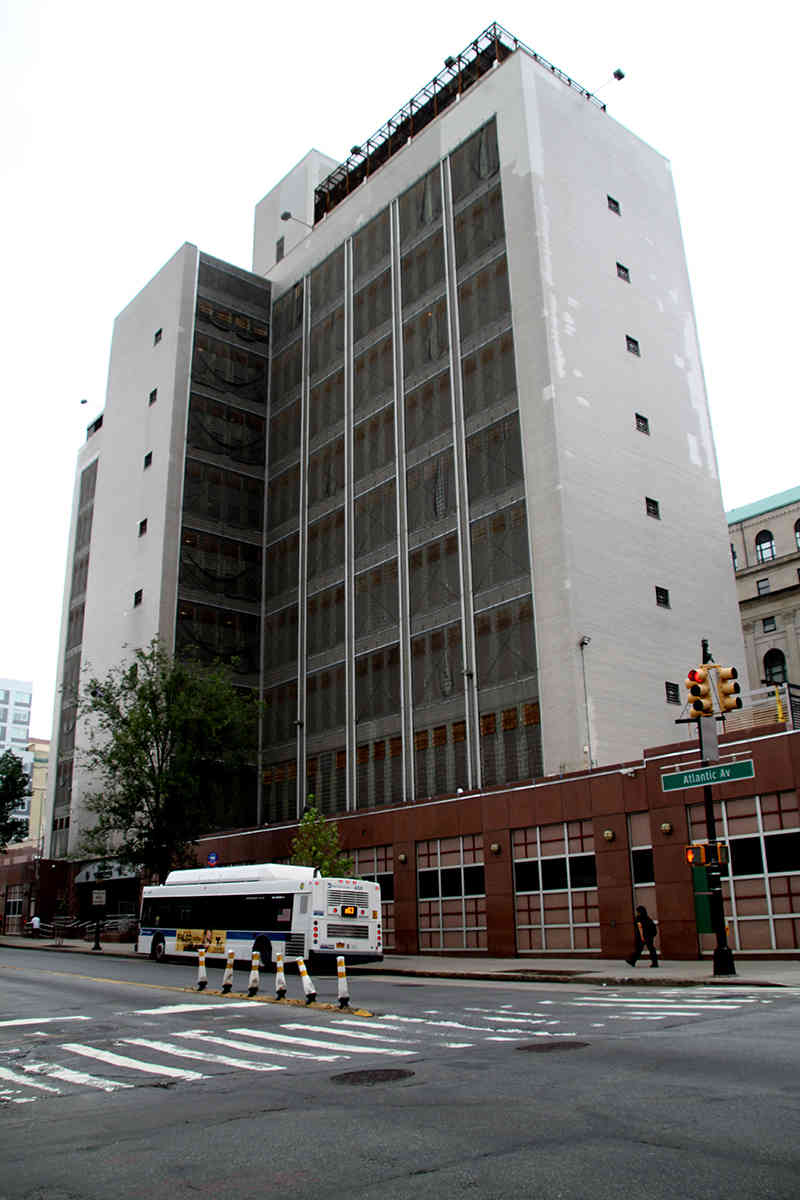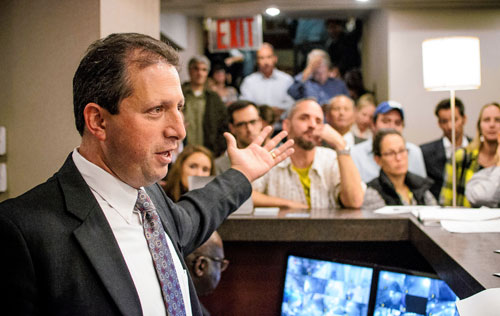A delay in construction of a new Brooklyn jail is causing justice reform advocates and formerly incarcerated leaders to doubt Mayor Eric Adams’ commitment to closing Rikers Island by the agreed-upon August 2027 deadline.
According to a public notice by the city’s Department of Design and Construction, a contract for building the borough’s new jail in Downtown Brooklyn will run over six years from the date of approval to proceed. This will take operations into 2029 — two years past the mandated deadline for shuttering Rikers.
According to a spokesman for Mayor Adams, the later completion date for the Brooklyn jail doesn’t mean the city is going to miss Rikers’ 2027 deadline.
The new Brooklyn jail is planned to be at the site of the old Brooklyn House of Detention at 275 Atlantic Ave., after its demolition.
COVID-19 affected the supply chain and increased construction and labor costs are slowing down the project.
“Mayor Adams has made clear he has no intention to close Rikers, the most notorious jail complex in the nation,” wrote Lincoln Restler, council member for District 33, in a tweet. “We need City Hall to speed up construction timelines & start investing in community solutions to safely reduce the incarcerated population. Rikers must close by 2027.”
Mayor Adams has made clear he has no intention to Close Rikers – the most notorious jail complex in the nation.
We need City Hall to speed up construction timelines & start investing in community solutions to safely reduce the incarcerated population. Rikers must close by 2027. https://t.co/EsN38T0Z2m
— Lincoln Restler (@LincolnRestler) March 13, 2023
Former Mayor de Blasio signed a bill six years ago committing to closing Rikers Island by August 2027, and be replaced by borough-based jails in Brooklyn, Queens, the Bronx and Manhattan.
Now, Mayor Eric Adams is increasingly talking about a “Plan B,” and elected officials say he has “no intention to close” the massive jail, even as people there die at the highest rate in a quarter century.
“Rikers should have been closed decades ago and this administration should be exercising leadership to find every way possible to do it faster,” said Darren Mack, Co-Director of Freedom Agenda, an organization focused on communities directly impacted by incarceration and system reforms, in a statement. “Instead, they’re introducing delays and threatening the legally mandated closure deadline. The Mayor says he wants to “get stuff done”? Then get those “upstream” investments made, get people the support and treatment they need, get people to court, get the jail population down, get the replacement borough-based facilities built and get Rikers closed. How many more lives is this mayor willing to see lost or forever damaged in that hellhole?”
New jails were intended to usher in an end to mass incarceration, but the jailed population has been increasing since 2020 and now nears 6,000 people — a large portion of whom have not yet been found guilty of their alleged crimes.
The city forecasts that the jailed population will increase to 7,000 this year, according to Department of Correction Commissioner, Louis Molina.
Adams says there needs to be a ‘Plan B’ since the four replacement jails can only house 3,300 people in total. But there are no new plans to remedy the situation yet.
“It is imperative for Mayor Adams to show how he gets Rikers Island closed by his direct actions and not just by his words,” said Anna Pastoressa, member of Freedom Agenda. “Years are going by, more damage is being done to people and communities.”
The proposed contract for the Atlantic Avenue jail is valued at $2.96 billion, paid for by bonds repaid over 30 years, with Tutor Perini Corp. in charge.
The full plan to close Rikers and replace it with borough-based detention centers has been estimated to cost at least $8.5 billion.
“Timely completion of the Borough Based Jails is a necessary next step towards closing Rikers, and pushing NYC towards a more functional and rehabilitative justice system,” said Reverend Wendy Calderon-Payne, Executive Director, Urban Youth Alliance, BronxConnect.
























